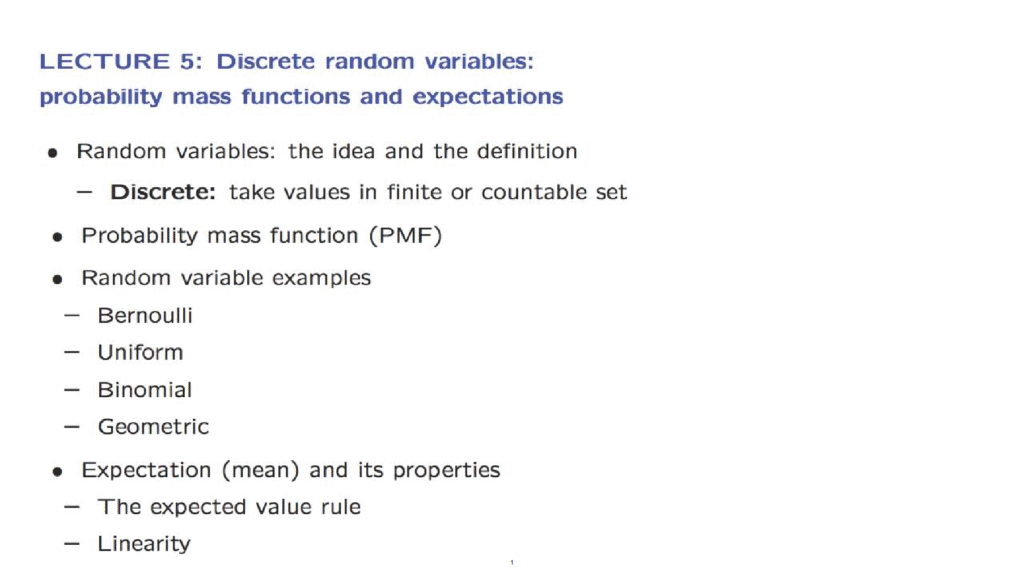In this lecture, we introduce the notion of a random variable.
A random variable is, loosely speaking, a numerical quantity whose value is determined by the outcome of a probabilistic experiment.
The weight of a randomly selected student is one example.
After giving a general definition, we will focus exclusively on discrete random variables.
These are random variables that take values in finite or countably infinite sets.
For example, random variables that take integer values are discrete.
To any discrete random variable we will associate a probability mass function, which tells us the likelihood of each possible value of the random variable.

Then we will go over a few examples and introduce some common types of random variables.
And finally we will introduce a new concept- the expected value of the random variable, also called the expectation or mean.
It is a weighted average of the values of the random variable, weighted according to their respective probabilities, and has an intuitive interpretation as the average value we expect to see if we repeat the same probabilistic experiment independently a large number of times.
Expected values play a central role in probability theory.
We will look into some of their properties.
And we will also calculate the expected values of the example random variables that we will have introduced.